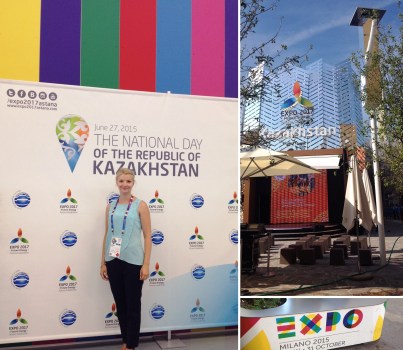Recently I received the following comment from an interpreter who is just starting his career:
Hello, Miss Snezhana. i want to be a translator and if possible, an interpreter. Since i am interested in Russian, i was surfing the web and came across your webpage. i am wondering about two things
1 being a male is a disadvantage as interpreter?
i mean people prefer females over males?
2. what is the routine as a professional interpreter? what is your schedule like?
like you get up, and practice your langauges? i mean i want to know your daily practice as a proffesional interpreter
Thank you,
Gyung
Instead of describing my daily routine and decided to describe one week of my professional life as an interpreter, from September, 5th through September, 10th, 2011
Monday: first day of simultaneous translation at the international conference on fusion energy. How did I prepare? I had a number of thesis that I looked through, I also read up on atom, nuclear physics, Rutherford and his experiments and I prepared a glossary. As always, speakers didn’t stick to their presentations so it was a pure simultaneous translation: I translate what I hear. The main topic of the conference – TOKAMAK –toroidal chamber with magnet coil.
Tuesday: second day of simultaneous translation at the international conference on fusion energy. I am getting comfortable with plasma-wall interactions and berilization process in a vacuum chamber. Topics are getting from general to more specialized.
Wednesday: third day at the same conference. Fusion, fission, lithization, tungsten – it’s just a small part of the discussion.
Thursday: consecutive translation at the Ministry of Health. Last minute call, so no preparation from my side. We speak about unified health information management system in Kazakhstan. Terms: DRG (diagnosis-related groups), HTA (health technical assessment), clinical content, etc. More of this next week.
Friday: consecutive translation for the USA Embassy Military Cooperation department. No comment on this one.
Saturday: simultaneous translation of a lecture on geopolitics for high-level officials from the Ministry of Economics and “Samruk Kazyna”. No materials available before the lecture, so again no preparation.
It’s just happened so that this week I didn’t have the materials to prepare for the meetings but normally I try to get hold some information and make myself familiar with the subject. Especially if it is a simultaneous translation.
Do I “get up, and practice my languages”? No, I don’t. I just don’t have the time for that. I get up and work. Work is the best practice ever.
As for the question whether people prefer male interpreters over females or vice versa, honestly I don’t know, I’ve only been a female interpreter.
So that’s how my week passed. After a short weekend there comes another week with both consecutive and simultaneous translation. No time to relax!
I hope my answer was useful to you, Gyung, and I wish you success in being an interpreter. It’s not easy, that’s true, but it’s lots of fun, trust me!




